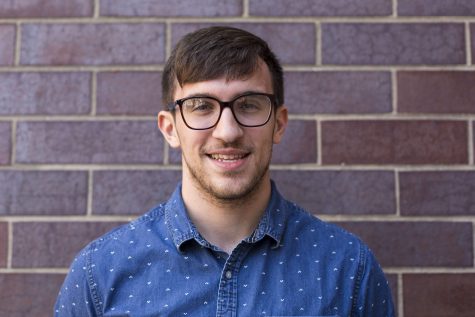How frisbee and art inform each other
Junior Kiyomi Taylor is part of the Violet Femmes, NYU’s women’s frisbee team.
October 28, 2015
The average NYU student doesn’t have the faintest clue that NYU has a frisbee team, and they couldn’t even pretend to know the rules of ultimate frisbee either. I’ve been sports editor at WSN for nearly two full semesters, and until a week ago, I didn’t know a thing about the Violet Femmes or the Purple Haze, the women’s and men’s frisbee teams.
But for junior Kiyomi Taylor, frisbee has always been on the radar, no matter if it was at NYU or somewhere else.
“I always knew I was going to play frisbee once I got to college,” Taylor said. “I got into frisbee because I would go to my brother’s tournaments and think, ‘This game’s awesome.’”
The Femmes, who sport a goofy Twitter page and a laid-back attitude, have given Taylor the opportunity to continue playing the sport she has loved since growing up at the high school that invented it — Columbia High School in Maplewood, New Jersey. The team doesn’t garner a whole lot of publicity or fan support. They are forced to practice late in the Coles Sports Center on Thursday nights because it’s the only gym time they can squeeze out of NYU. They have to travel as far as Georgia via bus for their favorite tournament. But to Taylor, frisbee has been essential to her college experience, and without it she’s not entirely sure where she might have ended up.
“I always say that I think without the frisbee team my mental health would be really low,” Taylor said.
Frisbee has presented its own problems, however. Taylor, a studio art major in the Steinhardt School of Culture, Education and Human Development, finds herself struggling to make time for her artwork and frisbee. Where her teammates can bring a textbook or a laptop on the bus, Taylor has to leave her portfolio and art supplies at home when they hit the road. But the balance of the two has allowed her a new perspective on each individually.
“It’s hard, but I love frisbee, and I love art,” Taylor said. “And I think in weird ways that they inform each other.”
To her, they inform each other in that they are both central to her identity and are both things she is passionate about. While she always knew she’d continue playing frisbee, art was something she was less certain about. Steinhardt was the only art school she applied to, and when she was accepted, she finally — at the urge of her high school art teachers — allowed herself to pursue what she always wrote off as a hobby.
“I was going to try and get a minor in art if that was something that was available to me,” Taylor said. “I do love art and people were telling me that it was something I should pursue.”
Her art, which is largely inspired by a self-described rich cultural heritage, has developed alongside her growth on the frisbee field. Through painting, collage and other mixed media techniques, Taylor tells the story of her family, and thus herself. Her grandmother on her mother’s side was born to a rich oil magnate in Fukuoka, Japan, and was rounding into adulthood near the end of World War II. When her grandmother fell in love with an African-American man on the Air Force base in Okinawa, Taylor’s story began to be written.
“This is World War II,” Taylor said. “My grandmother’s brother died from radiation in Nagasaki. So when she decided she wanted to get married to a black man in the American Air Force, her father disowned her. None of her family members came to her wedding.”
Taylor’s grandmother was forced to take up a new culture in the United States, living a hard-knock life style that was even more foreign than the place she found herself in.
“So she comes to America,” Taylor said. “My grandmother, who grew up really wealthy all her life, had to work four jobs cleaning people’s houses.”
Her grandmother’s story and her Japanese heritage are where she gets her first name, Kiyomi, which means “pure beauty”. Those family ties lie deep, not only in the past, but in the present. Taylor also remains close with her older brother — she recently missed a frisbee tournament so she could visit him in Boston.
“I’m just really inspired by my family in general,” Taylor said. “That’s everything I make work about.”
This year she’s taking a course in Japanese, in the hopes she can pull herself even closer to her cultural roots. Though the class remains challenging, she’s excited at the prospect of one day being able to keep up with her speed-talking Japanese grandmother. Hard work, it seems, is not foreign to Taylor, in the classroom or on the frisbee field. She, along with the rest of the Violet Femmes, will continue to work in relative anonymity this season.
For Taylor, though, whatever personal peace of mind she can take away from both the game and her teammates’ support is more important than any amount of cheering fans on the sidelines.
Email Bobby Wagner at [email protected].

























































































































































